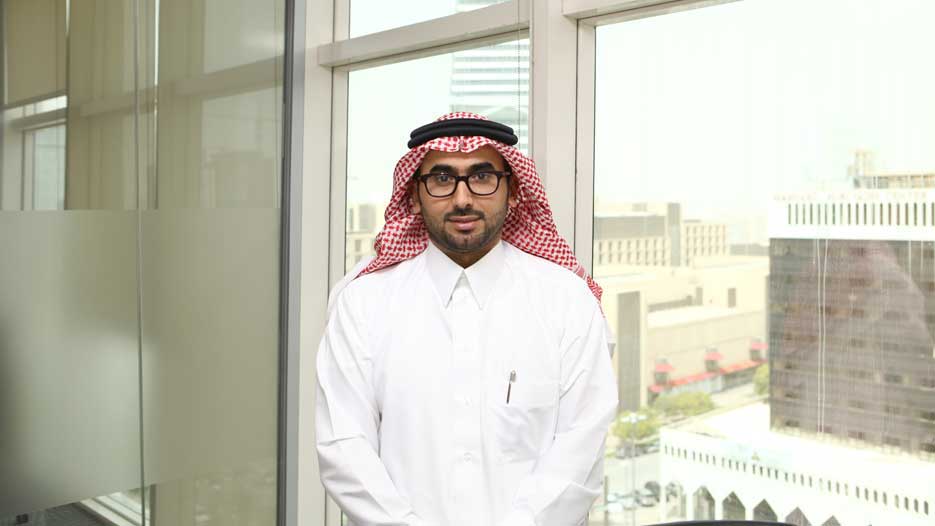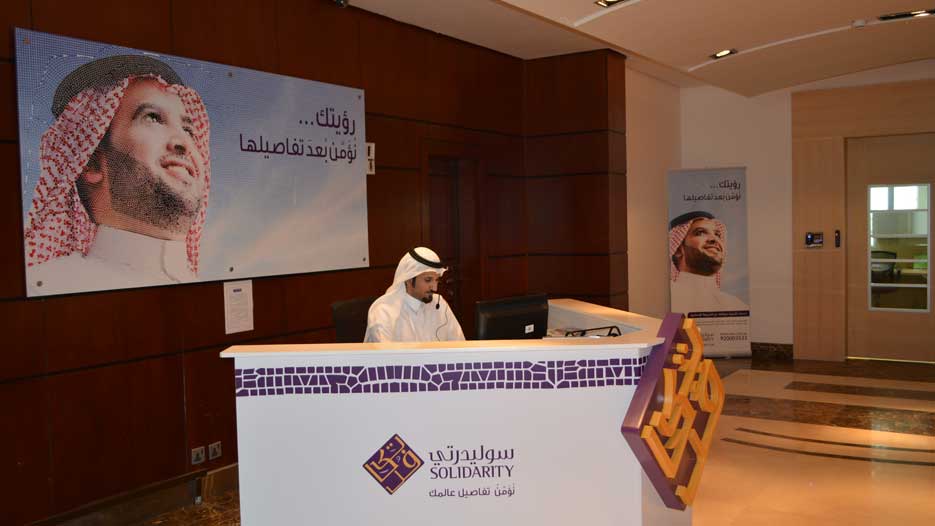Number one challenge in the insurance sector in Saudi Arabia is awareness
Insurance market in Saudi Arabia continues to face challenges.
Interview with Bader Saad Al-Shaya, Deputy-CEO of Solidarity

What types of services do you provide? What do you think will be the future drivers of your growth?
We provide most lines of insurance to the public: in terms of segmentation we provide retail and corporate. For lines of business, we provide medical insurance, motor insurance, general insurance – which is property insurance, and engineering for contractors and manufacturers – and also liability, life insurance, and credit life insurance.
We are heading towards providing full solutions for the corporate side, while also offering personal solutions. We have insurance agencies and sales outlets that provide our retail products. We rely on our customer relationship representatives and brokers to supply full solutions to corporate needs.
We believe that the future of insurance is going to catch up with other sectors in terms of e-solutions; we’re heading in this direction in order to penetrate this area (with applications and websites), so customers can access their data, communicate with us, and buy insurance from us.
A sturdy insurance sector is a significant asset of a strong national economy. How would you describe Saudi Arabia’s insurance sector, especially with the upcoming symposium?
The insurance sector for each country is the shield that protects the economy; we are currently building all the different components of this shield in Saudi Arabia. One of the components is awareness (societal awareness), which we can see is one of the challenges that we are facing in the insurance sector.
This affects sector growth and society’s perception. Our aim or goal is for society to not treat insurance solutions as an extra expense, but as a basic need for their life, businesses, or the whole economy.
The upcoming symposium, we will discuss the hot topics, obstacles, and challenges that we are facing; we will try to involve all of the stakeholders in the insurance sector, and discuss specific problem-solving topics on panels.
Can you briefly talk about these challenges?
How to tackle awareness is one challenge. Training and human resource manpower infrastructure to find and attract the right talent to work in the insurance industry is a challenge.
The capitals and emerging acquisition of insurance companies are two of the topics that we will talk about at the symposium as well.
You’re a relative newcomer to the market. What have you been doing to raise awareness, which is the number one challenge within the industry?
We have done the ‘conventional way’ as a newcomer: we launched public campaigns on social media (Twitter and Instagram), and raised awareness by making our outlets and sales points accessible in far away cities, towns, and major regions.
What steps has Solidarity taken in order to reach your goals?
Takaful is active in reviewing the process of our products, shares, and related activities of our business model. In order to reach our goal, we are focusing on service, retaining our clients, and providing them with the right service at the time they need it.
Our main product is to deliver what we promised, which is compensation at the time of loss or claim. This is what we are focusing on now.

The market is currently over-saturated with insurance companies, and some will most likely disappear in the next five years. How can you survive and thrive in such an environment?
This is a very good question. What leads most of the companies to this situation is under-pricing the risk that they are writing and high operating costs.
Nowadays, with the help of the regulator SAMA, we are following certain strategies to make sure that we rate the business risks the right way (i.e. we give the exact risk rating to all the risks we write).
In terms of operating costs, we focus on utilizing efficient operations and human resources because inefficiency elevates expenses and losses.
How do you try to compensate for having good risk management, but having higher rates?
We need balance between the two; at the end of the day, we are responsible for our shareholders. We need to mitigate risks for our clients, but we also need to rate them well. If we rate it well, then we will do our best service and satisfy our shareholders.
Or, if we reach any situation where the competition is unhealthy, we will move out because it doesn’t meet our values and principles.
What do you think are the main differences between your strategies that other companies are not following? How will these strategic advantages help you gain more market share or profitability? In what ways are you different from any other companies in the market?
Our principles and values are different, and also drive our operations, is our unique takaful model. This makes us do the best we can, in order to meet the service and expectation of each of our clients (rating prices, customer satisfaction, and sufficient operations).
At the end of the day, we get a win-win situation between all the stakeholders: clients, shareholders, and operations team.
What are the quantitative goals for 2015 (in terms of profitability, market share, etc.)? What are your set goals for this year?
As I mentioned before, the main goal is to meet the KPIs that we put forth for 2015. One of the KPIs is to maintain certain numbers in our portfolios – to have a good retention plan and reach the level we want in terms of risk exposure.
The clients that have a high-risk exposure, we help them set goals to help minimize exposure, and focus on what they are good at.